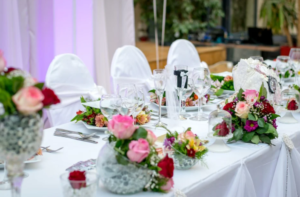While some people today seem never to enjoy the process of making an event, I do love it. Hence I make sure every detail of any event elements works successfully, including setting a timeline and meetings with any vendors, clients, and planning the whole event. To learn more about elements of a successful event, you can read in G2. There are essential keys to it. You have to enjoy it, and if it’s not enough for you, imagine how happy you will be when you see the guests enjoy your event so much. If you decide to organize an event on your own, you will find below some useful tips, which I wanted to discuss with you.

Understand the Goal of Your Event
The reasons why you are holding an event are something you should keep in mind. If it is a business or social occasion, there is usually a general objective. If you understand the purpose of your event, you can implement methods to achieve this goal successfully. Always inform and review with suppliers after the event. Learn exactly what worked and what did not work in planning your case so you can improve for your next event! Depending on the type of event you are planning, you will want to think carefully about who should be encouraged.
Start Early
 For the best event, you need to begin everything as early as you can. If your event is important, you should start planning for six months. Smaller events require at least one month for planning. Use the date one week before the event as a deadline. It will then give you the “thought space” which you can use to settle everything down by before you meet the deadline date. So, it’s also essential to start your deadline date and plan backward.
For the best event, you need to begin everything as early as you can. If your event is important, you should start planning for six months. Smaller events require at least one month for planning. Use the date one week before the event as a deadline. It will then give you the “thought space” which you can use to settle everything down by before you meet the deadline date. So, it’s also essential to start your deadline date and plan backward.
Keep Flexible and Always Negotiate
Things will change when the event is scheduled. When it comes to time, place, or number of visitors, you need to make sure you are flexible and keep up with the changes. You also need to establish your budget before you meet with vendors. Regardless of what you consider the vendors’ estimate, what is negotiable is negotiable. Hence, your flexibility and fresh energy are highly needed here.
Set Some Back-Up Plans
Even if you have a perfect job once, something can always go wrong. Have the mentality to anticipate that is half the battle. It keeps you going, and if something goes wrong, you’re ready to act. There might be bad weather, or an important person might be late. Be well prepared with an emergency plan for any failures that are not your responsibility.
Do a Run-Through
Ten days before the event, you should hold a run-through of your event with all staff, vendors, clients, and anyone involved. Then, you can begin with the first assembly until the end of the event. If a problem arises, you will have enough time to solve it. Make another run on-site three days before the event. This way, you can understand what possibilities might happen and make your event more perfect.
Document Your Event
Photos say more than a thousand words, and sending positive photos online is a great way to show your event’s success. I suggest hiring a photographer. He will know the ideal approach to capture the moment. Request a series of shots to make sure you cover all the bases; complete the room before the arrival of guests, key guests, or guests of honor at the event and many photos during the event.




